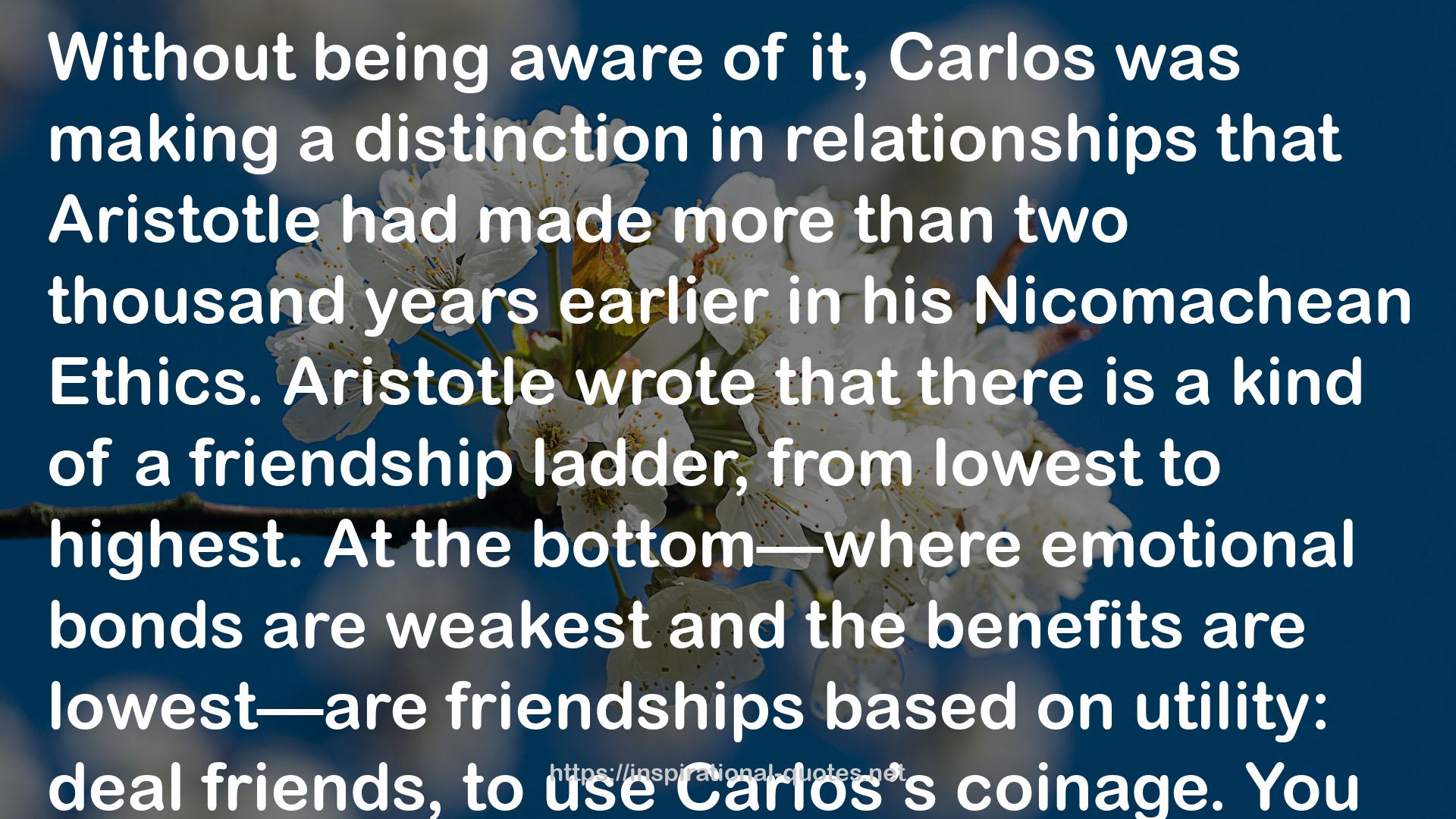" Without being aware of it, Carlos was making a distinction in relationships that Aristotle had made more than two thousand years earlier in his Nicomachean Ethics. Aristotle wrote that there is a kind of a friendship ladder, from lowest to highest. At the bottom—where emotional bonds are weakest and the benefits are lowest—are friendships based on utility: deal friends, to use Carlos’s coinage. You are friends in an instrumental way, one that helps each of you achieve something else you want, such as professional success. Higher up are friends based on pleasure. You are friends because of something you like and admire about the other person. They are entertaining, or funny, or beautiful, or smart, for example. In other words, you like an inherent quality, which makes it more elevated than a friendship of utility, but it is still basically instrumental. At the highest level is Aristotle’s “perfect friendship,” which is based on willing each other’s well-being and a shared love for something good and virtuous that is outside either of you. This might be a friendship forged around religious beliefs or passion for a social cause. What it isn’t is utilitarian. The other person shares in your passion, which is intrinsic, not instrumental. Of "
― Arthur C. Brooks , From Strength to Strength: Finding Success, Happiness, and Deep Purpose in the Second Half of Life
